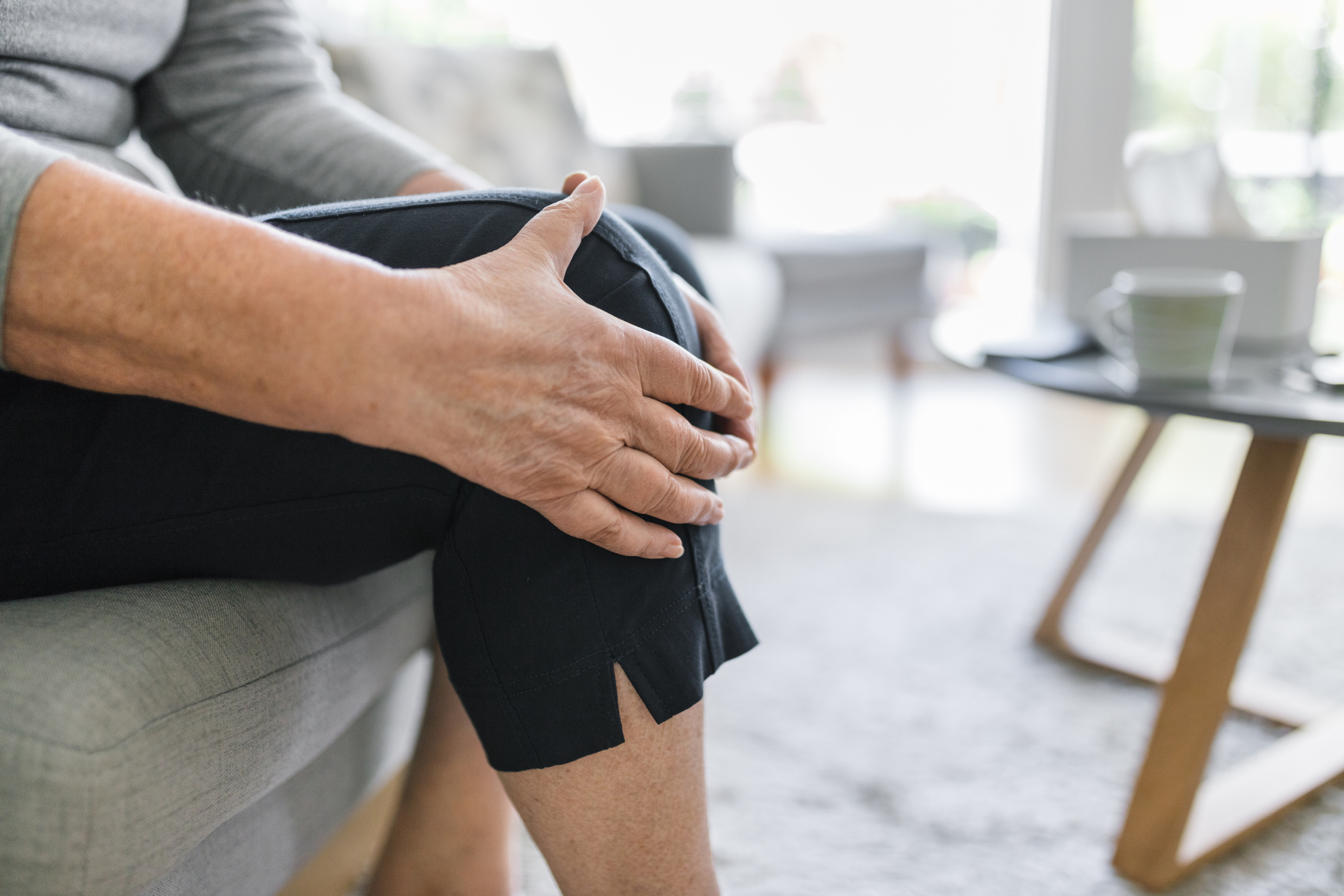Get Easy Health Digest™ in your inbox and don’t miss a thing when you subscribe today. Plus, get the free bonus report, Mother Nature’s Tips, Tricks and Remedies for Cholesterol, Blood Pressure & Blood Sugar as my way of saying welcome to the community!
Thinking about injections for knee pain? Read this first

By the time most of us get to our 50s, we’ve begun to experience joint pain, especially in the knees.
The protective cartilage that cushions the joints wears down and the pain we feel is bone-on-bone friction.
The pain, stiffness and loss of flexibility that comes with knee osteoarthritis affect more than 14 million Americans, many of whom seek help for the pain from their well-meaning physicians.
When the pills don’t help, many turn to knee injections intended to help build back that cushion, or so their doctors may believe.
Since the 1970s, hyaluronic acid has been one of those injectables.
But a large-scale data review has found that not only are these injections no more helpful than a placebo, they could be downright dangerous…
Injections are virtually useless and dangerous
Bruno da Costa is a physical therapist who has been following the research on hyaluronic acid injections (also known as viscosupplementation) for knee osteoarthritis for more than a decade.
And he’s wondering why their use is so widespread.
In 2012, da Costa and a team of researchers published a comprehensive review of research that brought to light just how ineffective the injections were.
Yet even after those results were made known, the rate of patient trials with hyaluronic acid injections doubled in the years following, raising ethical concerns.
According to da Costa, “we have enough trials already to come to a conclusion. We don’t need more.”
For this reason, he was compelled to conduct an updated, even wider-reaching systemic review of hyaluronic acid studies, published recently in The BMJ.
He and his team dived into 169 studies involving 21,163 participants. Then, narrowing their focus, they analyzed a few dozen placebo-controlled trials, with over 6000 patients, for reported changes in pain intensity, function levels and the risk of adverse events.
Not only were his previous assertions validated — that hyaluronic acid injections offered little to no benefit — but they were also found to increase the risk for serious side effects, including…
- Increased risk of gastrointestinal inflammation and infections;
- Cardiovascular problems;
- Blurred vision;
- And dizziness, to name a few.
The authors of some of those studies in the review dismissed the side effects as unrelated to the injections. But it’s hard to argue with facts like this one…
In 2018, more than a quarter of Medicare payments for viscosupplementation were not for the procedure itself, but for treating resulting joint infections following the procedures.
How can you safely help your aching knees?
For every study like Professor da Costa’s, there are several that are less objective. They are the studies sponsored by the medical industry itself.
And they help fill pockets…a 2016 study of patients with knee osteoarthritis who were treated with hyaluronic acid showed that, on average, they received 3.6 injections at an average cost of $300 per injection.
But now that it’s obvious they don’t help and cause harm, what can you do? A few things…
One is to call on the power of natural pain relievers.
Garlic is a powerful anti-inflammatory agent, found to be surprisingly effective for osteoarthritis knee pain. And no, you don’t need to rub garlic on your knees or eat raw garlic. These days odor-controlled garlic supplements are readily available.
Another good one is vitamin D, that’s been shown in research to affect the body’s inflammation response in a way that lowers the sensation of pain, without the heart attack risk of NSAIDs.
Research into natural remedies, like vitamin D or garlic, is less likely to help fill anyone’s pockets since you can fill your pantry with dietary sources. In fact, if you’re a fan of smoothies, try this 6-ingredient drink that squashed joint pain.
The other thing you can do is what the Arthritis Foundation advises…
They say resting your achy joints isn’t doing them any good. The solution is to get up and go.
In fact, that may be the best way to avoid knee pain, according to science.
They recommend some form of cardio five days a week (even brisk walking counts — and may help you avoid knee replacement surgery) and resistance training twice a week.
A surprising tip I read about a few years ago is to squat once a day. It helps lubricate your knees. Give it a try!
Editor’s note: Did you know that when you take your body from acid to alkaline you can boost your energy, lose weight, soothe digestion, avoid illness and achieve wellness? Click here to discover The Alkaline Secret to Ultimate Vitality and revive your life today!
Sources:
Common injections don’t help knee osteoarthritis more than placebo, large data review finds — Stat
Viscosupplementation for knee osteoarthritis: systematic review and meta-analysis — The BMJ
Viscosupplementation for Osteoarthritis of the Knee — Annals of Internal Medicine
Researching collagen to help his achy knees, a statistician explores the painfully weak evidence — Stat News













